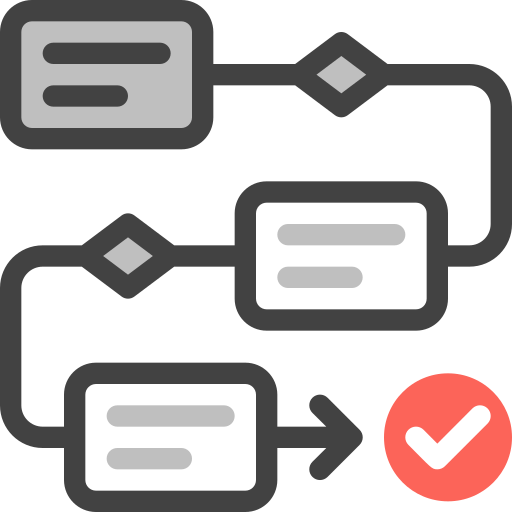Managed IT Services for Law Firms
Improved efficiency and reduced downtime
Legal work demands precision and timeliness. Don’t let technology glitches, unexpected downtimes, and frustrating IT issues derail your productivity. Our managed IT services act as your dedicated technology partner, proactively monitoring your systems, resolving issues quickly, and streamlining your tech infrastructure for maximum efficiency.
Secure, Reliable, Efficient IT – Designed for Law Firms

Understanding Managed IT Services for Law Firms
Managed IT services involve outsourcing the management and support of a law firm’s technology infrastructure to a third-party provider. Law firms require a technology infrastructure that adapts to growth or changing needs. Managed IT providers offer flexible solutions that scale along with your firm.
Important Features for Legal Managed IT Services
- Deep Cybersecurity Expertise: Robust firewalls, encryption, threat detection, and incident response plans tailored to the legal field are essential.
- Experience with Legal Software: Support for practice management tools, document management systems, and specialized legal software.
- Proactive Approach: Prioritization of preventative maintenance and monitoring for seamless operation.
- Compliance Adherence: Providers well-versed in industry regulations and capable of implementing the required safeguards.
A few of the important IT services

Cybersecurity & Data Protection

Proactive network monitoring and maintenance

Software updates & patching

Cloud solutions and data backup

Disaster recovery planning

Strategic technology guidance
"Law firms are considered prime targets for cyberattacks, with a 23% higher weekly attack rate compared to other industries."
- Accenture
Why law firms need managed IT services
Heightened Data Security
Law firms handle an extraordinary amount of highly sensitive client information. Managed IT providers specialize in implementing robust security measures (encryption, firewalls, access controls) to safeguard this data, ensuring both protection and compliance.
Compliance Expertise
Adhering to regulations like HIPAA, GDPR, and specific industry standards is non-negotiable for law firms. Managed IT providers have the knowledge and experience to implement systems and processes in line with these regulations, minimizing the risk of compliance failures, penalties, and reputational harm.
Proactive Monitoring and Threat Prevention
IT threats evolve constantly. Managed IT providers aren't simply reactive – they continuously monitor your systems for vulnerabilities, patch software promptly, and utilize advanced tools to identify and neutralize threats before they become major disruptions.
Maximized Efficiency and Reduced Downtime
Technology hiccups cost law firms both time and money. Managed IT services resolve issues swiftly, proactively maintain systems to prevent breakdowns, and strategically upgrade technology, minimizing the impact of IT problems on your billable hours and client deadlines.
Does your law firm need managed IT services?
Here’s a breakdown of the primary reasons why law firms specifically benefit from managed IT services:
- Law firms hold vast quantities of highly confidential client data, including personally identifiable information, financial records, and case-related materials.
- Managed IT providers specialize in implementing robust security measures like:
- Advanced firewalls and intrusion detection systems
- Data encryption (both at rest and in transit)
- Secure access controls and user authentication
- **Regular vulnerability testing and penetration scans **
- These enhanced measures safeguard sensitive data and minimize the risk of damaging data breaches.
- Law firms must navigate a complex landscape of data protection regulations and industry-specific standards, including:
- HIPAA (for health-related data)
- GDPR (for clients in the European Union)
- State-level data privacy laws
- Bar association guidelines
- Managed IT providers with legal industry experience understand these regulations. They help implement systems and processes that comply, reducing the risk of costly fines, reputational damage, and potential ethical breaches.
- IT threats constantly evolve, and reactive approaches are insufficient.
- Managed IT providers continuously monitor your systems for vulnerabilities, patch software promptly, and utilize advanced threat detection tools.
- This proactive approach identifies and нейтраlizes potential issues before they escalate into major disruptions, leading to:
- Reduced downtime
- Minimized risk of data loss
- Increased operational efficiency
- Technology glitches and unexpected downtime cost law firms revenue in the form of lost billable hours and frustrated clients.
- Managed IT services provide:
- Swift issue resolution
- Proactive system maintenance to maximize uptime
- Strategic technology upgrades to streamline workflows
- As law firms grow, their IT needs evolve. Adding new employees, opening new offices, or adopting new legal technology can strain existing infrastructure.
- Managed IT providers offer scalable solutions tailored to your firm’s growth. They ensure your technology always supports your expansion without causing delays.
- Managing complex IT infrastructure is time-consuming and requires specialized skills.
- By outsourcing to managed IT experts, law firms can:
- Free up internal resources and valuable mental energy
- Enable lawyers and support staff to dedicate their talent and time to serving clients and practicing law
Ready to get started?
Let’s talk about how we can make your business stronger and faster using technology. Send us your details so that we can schedule a free assessment and consultation.
"*" indicates required fields
